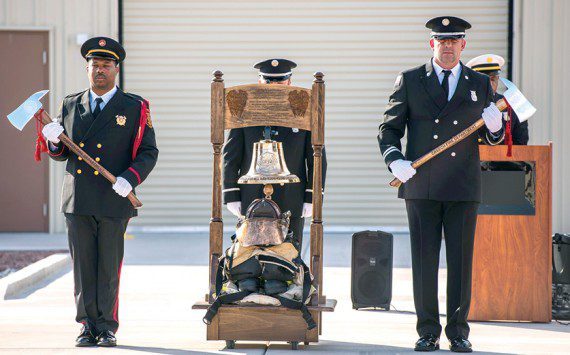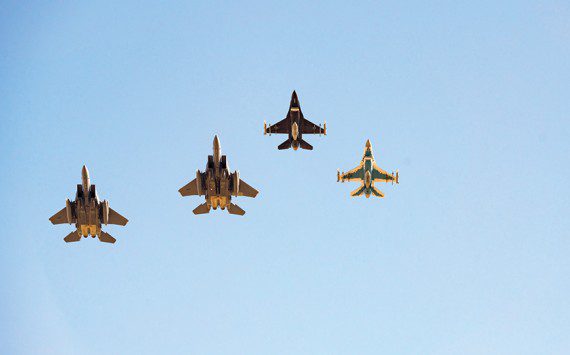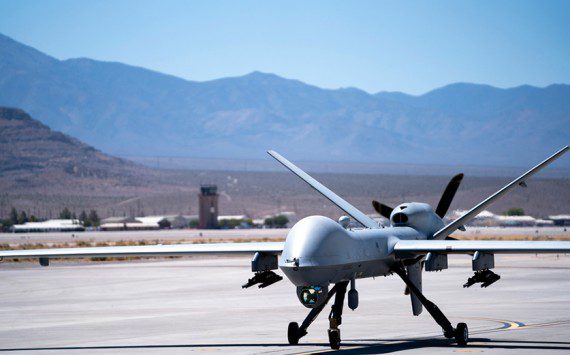As we draw closer to the March 9, 2018, sunset of the MQ-1 Predator, as the commander of the 15th Attack Squadron, the last squadron in Air Combat Command to operate the venerable aircraft, I have been asked numerous times for my thoughts about the retirement of the “Pred.”
I will attempt to explain my thoughts and feelings about an aircraft and mission I have been flying for almost the entirety of my career.
I have seen this community grow from just two small operational squadrons sequestered away at Nellis AFB to the amazing enterprise it is today expanded across the entire United States.
As I reflected over my time flying the MQ-1, which I initially qualified on the aircraft in 2006, I thought about all of the major milestones and accomplishments the aircraft represents and tried to compare those to the actual airframe itself.
The MQ-1 has accomplished too many feats to list here, but I do believe it symbolizes a revolution in airpower and aircraft design. Not bad for an underpowered, prototype aircraft that was never designed to carry weapons or fly as long as it has.
The true legacy of the MQ-1 is not the aircraft itself, but rather the community it has created and the Airmen it has brought together. The MQ-1 showed how disparate pilots from across the Air Force can come together to create a culture of excellence and a Hunter mentality that permeates all remotely piloted aircraft operations to this day.
The MQ-1 legacy is how sensor operators figured out how to use 1980s and 1990s technology to provide cutting edge tactical intelligence to battlefield commanders. The MQ-1 also demonstrated the resourcefulness, ingenuity and no-fail mentality that our maintainers have to keep these aircraft flying despite tired airframes and perpetual low manning.
The MQ-1 has also shown how support personnel from intelligence to aviation resource management can figure out the best ways to support this airframe despite only receiving training designed to support other aircraft. The success of the MQ-1 is the community and culture it created, not the airframe itself.
I think the story of the MQ-1 is a perfect example of what the U.S. Air Force does best, trust its Airmen to innovate and use technology in a manner never envisioned to complete the mission.
That is the legacy of the MQ-1 and I am grateful to have been a part of it. In the end, the MQ-1 is just an aircraft, the Airmen who enabled it to be so successful are the ones who need to be celebrated.
So while I will miss flying the MQ-1, I cannot help to be excited about the expanded capabilities the MQ-9 Reaper brings to the fight. I cannot wait to see what the Airmen of the 432nd Wing will continue to do with this platform, but I will also never forget where it all started … with the MQ-1 Predator.











